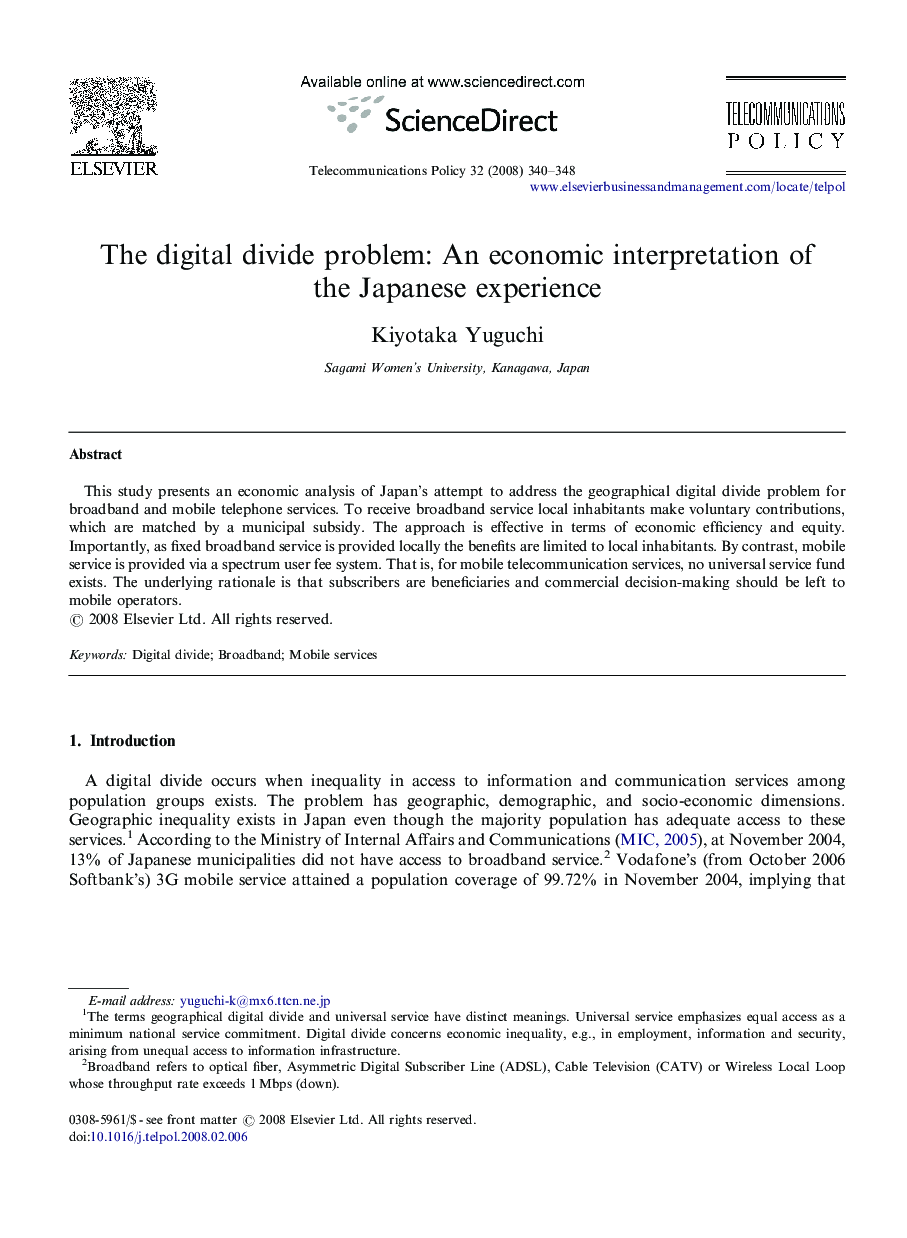| Article ID | Journal | Published Year | Pages | File Type |
|---|---|---|---|---|
| 556893 | Telecommunications Policy | 2008 | 9 Pages |
Abstract
This study presents an economic analysis of Japan's attempt to address the geographical digital divide problem for broadband and mobile telephone services. To receive broadband service local inhabitants make voluntary contributions, which are matched by a municipal subsidy. The approach is effective in terms of economic efficiency and equity. Importantly, as fixed broadband service is provided locally the benefits are limited to local inhabitants. By contrast, mobile service is provided via a spectrum user fee system. That is, for mobile telecommunication services, no universal service fund exists. The underlying rationale is that subscribers are beneficiaries and commercial decision-making should be left to mobile operators.
Related Topics
Physical Sciences and Engineering
Computer Science
Information Systems
Authors
Kiyotaka Yuguchi,
